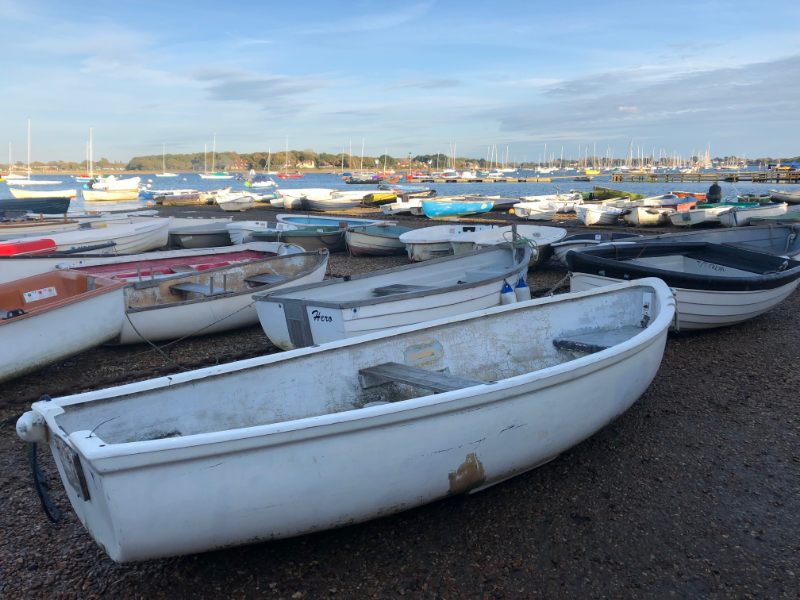A new Citizen Science project is being undertaken in Chichester and Langstone Harbours. The project, which is being led by the University of Brighton, is looking at pollution in the Harbours caused by fibreglass boats. The team are keen to hear from the local community around Chichester and Langstone Harbours concerning aquatic littering and pollution.
The key area of focus is to demonstrate how old or abandoned boats are contributing to pollution by discharging Glass Reinforced Particles (GRPs) into the water. There are concerns that these ageing fibreglass boats are having an impact on aquatic life.
Fibreglass boats have, for the past sixty years, provided an affordable and durable means for smaller commercial fishers and professional sailors to create an income and use recreationally. As these boats age and decay they release toxic microfibres including glass reinforced plastics (GRPs) into the aquatic environments where they are moored. These toxins hinder marine life and embed themselves in human and animal soft tissue if ingested. Boat abandonment and disposal at sea through scuttling is a route often taken by some boat owners in the UK and elsewhere, mostly due to the lack of legislation around boat disposal and recycling. The project aims to explore these issues, and gather data about how much of an impact the situation is having.
The Citizen Science project runs between March and July 2023. The University of Brighton is running three training workshops in April – one on water sampling, one on photo documentation and the last on blog writing. 15 places on each workshop are available, with all training provided free to those attending. Any data collected will be stored and made publicly available. A focus group will be held toward the end of the project to explore future collaborations and review research outcomes.
Find out more, or register for a workshop, by contacting the project’s research team: Dr Corina Ciocan: c.ciocan@brighton.ac.uk or Dr Mary Gearey: m.gearey@brighton.ac.uk.
